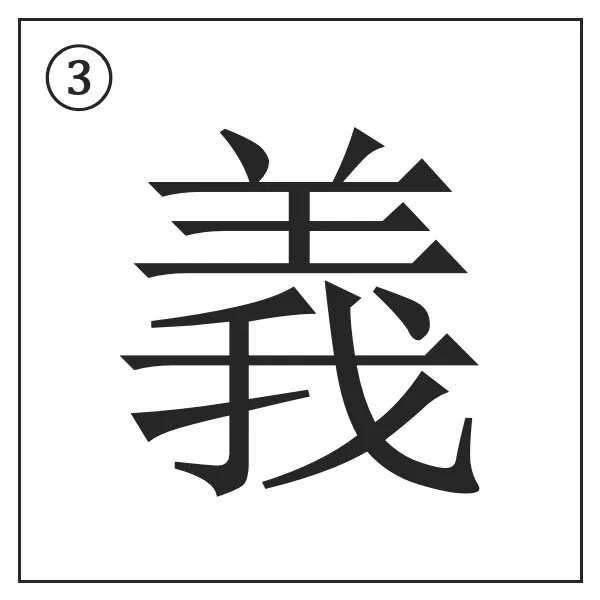¹ wǔ cháng 五常: “Five Constants”
“These five are called the Five Constant Virtues, also the Five Natures. Trustworthiness is nothing but the real principle of the four, it is easy to understand. For humanity, rightness, ritual, and wisdom, however, one must discern each of them clearly but must also view them together so their interrelations will be in order.” – Chen Chun, Chen Chun’s Explanation of Terms 8:1, tr. Chan modified
² rén 仁: “humanity”
“Humanity is the principle of love and the character of the heartmind.” – Zhu Xi, The Discourses with Collected Commentaries 1:2, tr. Chan modified
Mnemonics: 仁 = 人 + 二 (i.e. “person” + “two,” means “relations between people in society”)
³ yì 義: “rightness”
“Humanity is man’s mind and rightness is man’s path.” – Mengzi, The Mengzi 6A:11, tr. Chan modified
⁴ lǐ 禮: “ritual, propriety”
“Ritual is regulation and ornament according to the organizing Principle of Nature; it is the form and standard of human affairs.” – Zhu Xi, The Discourses with Collected Commentaries 1:12, tr. Sol
⁵ zhì 智: “wisdom”
“Wisdom is clearly knowing the principle of what is right and recognizing the conditions of the time.” – Zhu Xi, The Mengzi with Collected Commentaries 1B:3, tr. Sol
⁶ xìn 信: “trustworthiness”
“Trustworthiness in the Five Constant Virtues refers to the real principle of the mind, while trustworthiness in the concept of ‘loyalty and trustworthiness’ refers to the real truth of what one says.” – Chen Chun, Chen Chun’s Explanation of Terms 9:5, tr. Chan modified





